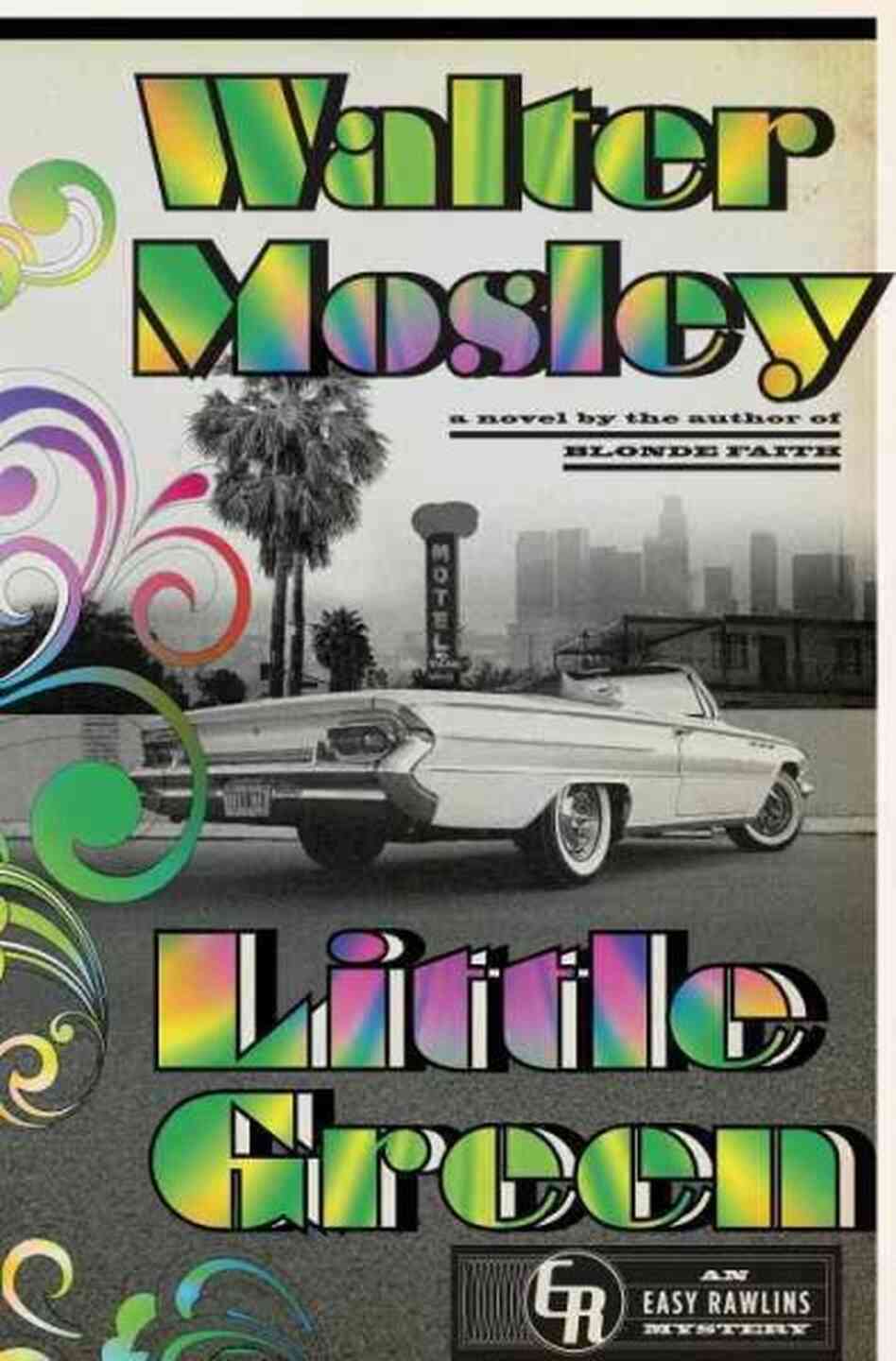
 Little Green by Walter Mosley
Little Green by Walter MosleyOn Monday, our country celebrated the life and achievements of Martin Luther King, Jr., the civil rights leader assassinated on April 4, 1968. Were Dr. King alive today, I think he'd share my enjoyment of some novels about the struggle for equality: Attica Locke's Black Water Rising (Harper, 2009), which delves into the campus protest movement past of a young black lawyer who is placed in jeopardy later, when he and his wife witness a murder. James McBride's The Good Lord Bird (Riverhead Books/Penguin Group USA, 2013), about abolitionist John Brown, was reviewed here.
I don't doubt King would appreciate Ezekiel Porterhouse Rawlins, the black Walter Mosley character who fought in World War II and moved from Houston, Texas, to Los Angeles, where he opens an office with a sign on the door that says "EASY RAWLINS—RESEARCH AND DELIVERY." Years later, the sign stays the same, but Easy obtains a valid PI license after he's earned the grudging respect of the Los Angeles chief of police, who sees him as a bridge to L.A.'s black community.
 I thought we had seen the last of Easy when he takes an intentional, drunken drive off a cliff on the Pacific Coast Highway in 2007's Blonde Faith. When Easy tells us, "I came half-awake, dead and dreaming" to begin Mosley's twelfth series book, Little Green (Doubleday, 2013), it's two months later in 1967. Easy has no sooner staggered out of his coma when one of the most feared men in Los Angeles, his best friend, Raymond "Mouse" Alexander, asks for a favor. Nineteen-year-old Evander "Little Green" Noon had gone to the Sunset Strip, where he called his mother, Timbale, to tell her he'd met a hippie woman and would come home after they'd gone to a club to listen to music. Evander never reappeared and Ray, who feels responsible for the boy since killing his father, asks Easy to find him.
I thought we had seen the last of Easy when he takes an intentional, drunken drive off a cliff on the Pacific Coast Highway in 2007's Blonde Faith. When Easy tells us, "I came half-awake, dead and dreaming" to begin Mosley's twelfth series book, Little Green (Doubleday, 2013), it's two months later in 1967. Easy has no sooner staggered out of his coma when one of the most feared men in Los Angeles, his best friend, Raymond "Mouse" Alexander, asks for a favor. Nineteen-year-old Evander "Little Green" Noon had gone to the Sunset Strip, where he called his mother, Timbale, to tell her he'd met a hippie woman and would come home after they'd gone to a club to listen to music. Evander never reappeared and Ray, who feels responsible for the boy since killing his father, asks Easy to find him. There is one white cop Easy trusts: Detective Melvin Suggs––but most white Los Angeles cops can't be trusted by blacks on sight. As Easy shows Evander's picture to people on the Strip, he's reminded of black towns in Mississippi and Louisiana, where workers gathered to drink homemade liquor, dance, laugh and cry because they were under the thumb of racism. He says the hippies on the Strip feel under the gun, too. They are outraged by Vietnam and ostracized because of their clothes and habits. Unlike people in older times, they feel they can change the world that tries to hold them down. After some whites come to intervene when cops hassle him and another black man on a street corner, and another white sticks up for him during a dispute in a diner, Easy feels hopeful:
There is one white cop Easy trusts: Detective Melvin Suggs––but most white Los Angeles cops can't be trusted by blacks on sight. As Easy shows Evander's picture to people on the Strip, he's reminded of black towns in Mississippi and Louisiana, where workers gathered to drink homemade liquor, dance, laugh and cry because they were under the thumb of racism. He says the hippies on the Strip feel under the gun, too. They are outraged by Vietnam and ostracized because of their clothes and habits. Unlike people in older times, they feel they can change the world that tries to hold them down. After some whites come to intervene when cops hassle him and another black man on a street corner, and another white sticks up for him during a dispute in a diner, Easy feels hopeful:
When the Watts Riots had ended I saw the divisions form among the nonwhite races of L.A. I'd also seen a split in our own community, where brother turned against brother and corrupt city officials stepped in to take their revenge. But in that hippie diner there was the hint of something hopeful. There were white people realizing for the first time what it was like to be shunned and segregated, fired for no reason and arrested because of the way they looked.
It's an insightful trip back to 1967 with Easy. He might have driven off a cliff in one world, only to wake up in the beginning of a new world.
This book sounds exciting. I can wait to read it!
ReplyDeleteMC, I'm sure you'll like LITTLE GREEN. Easy wakes up from a coma and undergoes a series of personal changes in a world that's changing too. I'm very glad Walter Mosley brought Easy back after an absence of six years.
ReplyDelete